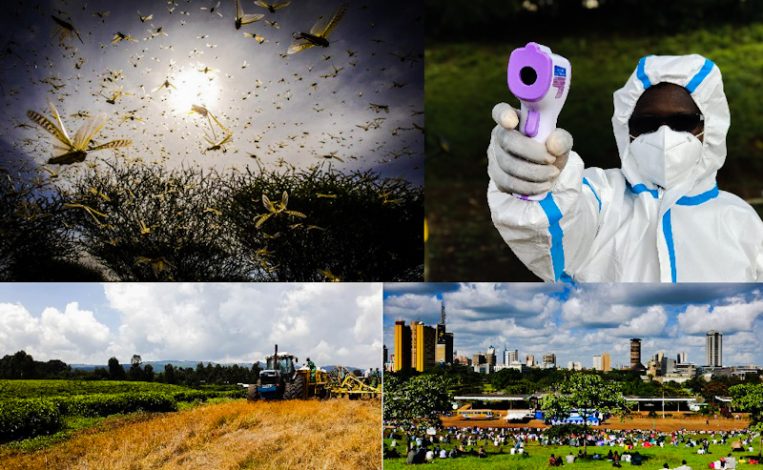
The COVID-19 pandemic has thrust the world into an alarming state of uncertainty. While governments and organisations have put in measures to protect the wellbeing of the general public, navigating the unknown has required us all to make decisions without a blueprint, underscoring the value and importance of trust.
For the first time, Edelman, which has been studying Trust for 20 years and releases an annual global Trust Barometer, has released data on Kenya. The study measures trust across four institutions: Government, Business, NGOs, and the Media.
According to the findings, NGOs and businesses were the most trusted institutions in Kenya, prior to the outbreak of the virus. In addition to this, despite the obstacles, Kenya has faced in recent
years, and the lack of trust in the ability of societal leaders to address the country’s challenges, there was a great sense of optimism in the country with 90% of respondents stating they believed that they and their families will be better off economically in five years’ time.
As the first case of COVID-19 was announced in the country, however, on 13 th March 2020, Kenya was faced with an unfamiliar challenge.
Economic prosperity is no longer a reality for many, as the economy reels from the effects of COVID-19. In times like these, guidance is
often what we search for. Looking at the pandemic through the lens of trust allows us to discern what the public requires from Government, the media, NGOs and Business, at this pivotal moment.
Trust is the foundation of any relationship. According to the Edelman Trust Barometer, trusted companies are more likely to be successful and are more likely to have better relationships with their stakeholders.
Trust also has a commercial value and strongly drives decision making – trusted companies have a 5% greater value than their peers.
A key theme at the 2020 World Economic Forum was Stakeholder Capitalism – the idea that businesses ought to go beyond focusing on profit margins (Shareholder Capitalism) and rather focus on bringing value to their customers, suppliers and communities.
During COVID-19, we have seen that come to life; 71% of respondents say that brands and companies that are seen to be placing profits before people during the crisis will lose their trust forever. Right now, consumers want to see companies solve problems, not sell products. Safaricom did this early on with their decision to slash M-Pesa transaction fees, allowing Kenyans to cut back on their costs. 60% of respondents also say that during this crisis, they are turning to the brands that they trust.
For NGOs and the media, the time to step up is now. The public is looking for reliable sources of pandemic-related news, while NGOs ought to be contributing to pandemic relief efforts and protecting the most vulnerable in society.
This opportunity is compounded by the fact that in Kenya, both institutions are seen to be both ethical and competent, which is not the case for any of our other markets globally. To put it simply- expectations are high.
Fortunately, we have seen NGOs in Kenya rise to the occasion; UN-Habitat, for example, has set up handwashing stations, information centres and temperature checks in the informal settlements of Mathare and Kibera and continues to address gaps in relief efforts across the country.
Collaboration is also key, not just across businesses but also across institutions. According to our data, 65% of respondents will appreciate brands that collaborate with competitors in order to develop effective responses to the pandemic at a faster rate.
Neither business nor government, moreover, is trusted to go it alone right now-both institutions need to work together to help solve the challenges the country faces.
Indeed, in his most recent address to the nation, President Uhuru Kenyatta encouraged citizens to work with the Government, not only in the fight against COVID-19, but also to revive the economy.
One salient example of collaboration is the COVID-19 Emergency Relief Fund, which has contracted local industries to produce Personal Protective Equipment (PPE) for healthcare workers and released financial resources amounting to more than Kshs 1 billion to this end.
Kenya is now emerging as a net exporter of PPE in the region due to the well-executed craftsmanship of the textile industry and the financial support of the Emergency Relief Fund.
Striking the right balance between protecting citizens from the virus, while stimulating economic activity is not something that has been perfected anywhere across the world. With the number of cases going up in the country, and restrictions on movement easing, the government will be under scrutiny to lead responsibly in the coming weeks, as Kenyans evaluate the perceived risks, and how economically secure and physically safe they feel.
The optimism that filled the country just a few months ago now hangs in the balance. For Business and Government, recovery will be slow and there will be more uncertainty to confront.
In order to emerge from the crisis, leaders will need to make decisions that are guided by trust and compassion and with the knowledge that we are building a future that looks starkly different to our past.
To paraphrase the President, ‘we can’t use old maps to navigate new lands.’




